Real-life trombonists explain why Trombone Champ is so much fun
Discussing the high and low notes of Holy Wow's rhythm game with the people who understand the craft most

Surprise hit Trombone Champ has re-ignited many players' long-dormant passion for rhythm games – whether they realized it beforehand or not. But while gamers and critics have been singing its praises, the voice of one group has not been heard enough: actual trombonists. As a musician myself – currently the second oboe in Leicester Symphony Orchestra – I set off on a quest to find out what real trombonists make of the game, how it compares to playing the real thing, and how a wrong note-filled journey to mastering a virtual instrument can highlight the joy found in classical music.
One of my biggest takeaways from conversations with real-life trombone players was that although the game isn't aiming for absolute accuracy, Trombone Champ does mimic real trombone playing in some pretty key ways. The obvious parallel between the game and playing a real trombone is the use of the slide – players will often correct an incorrect note in-game by sliding into a note so they can happily pretend they were always hitting the right one. One trombonist explains: "I mean, that's what happens in real life. Sometimes when you're on a wrong note, you just quietly slide up into the right one."
A classic case of 'fake it till you make it' is at play, it seems. And the more I chatted to real-life musicians, the more I found distinct parallels between Trombone Champ and the real thing.
Slide away
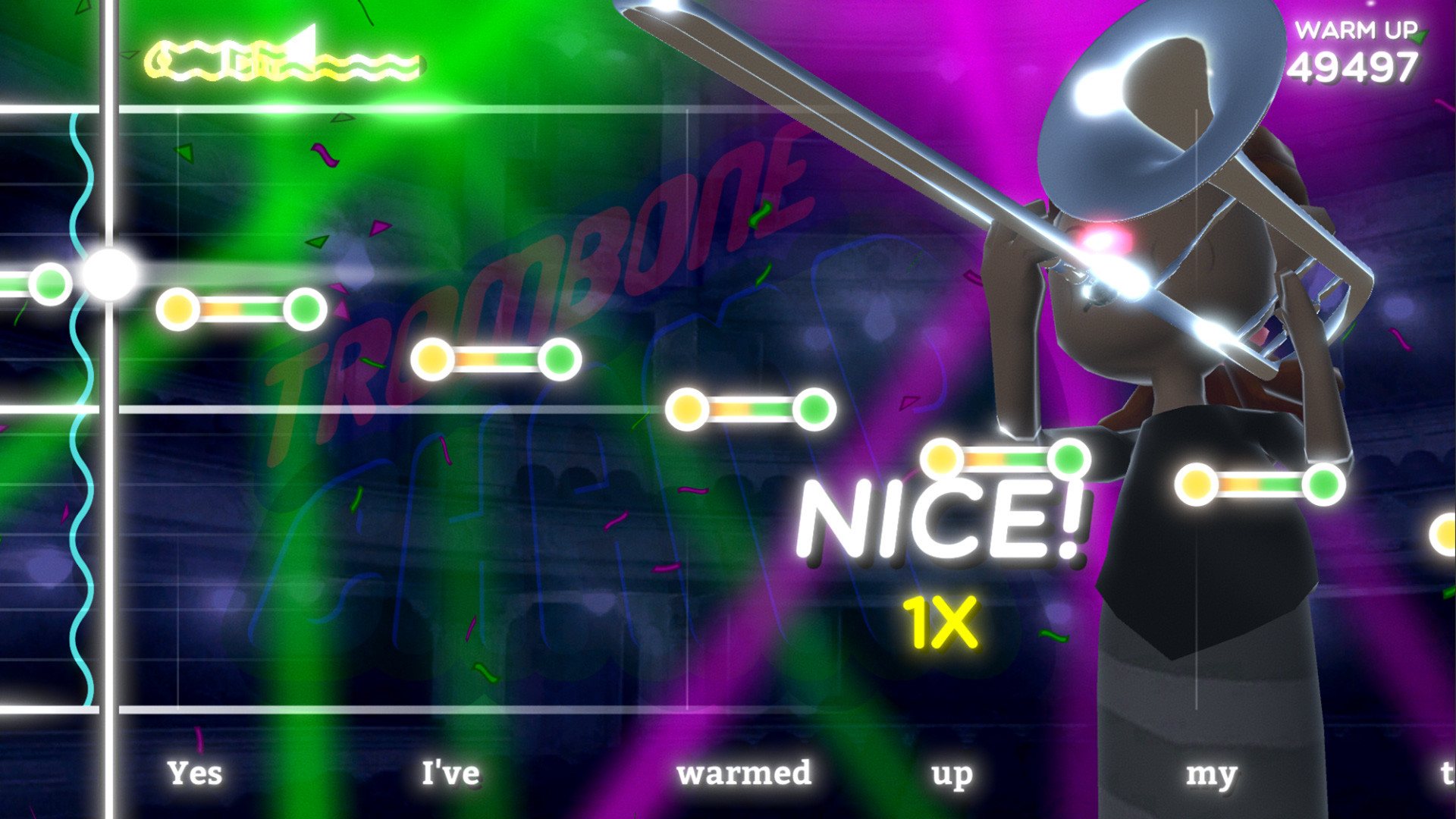
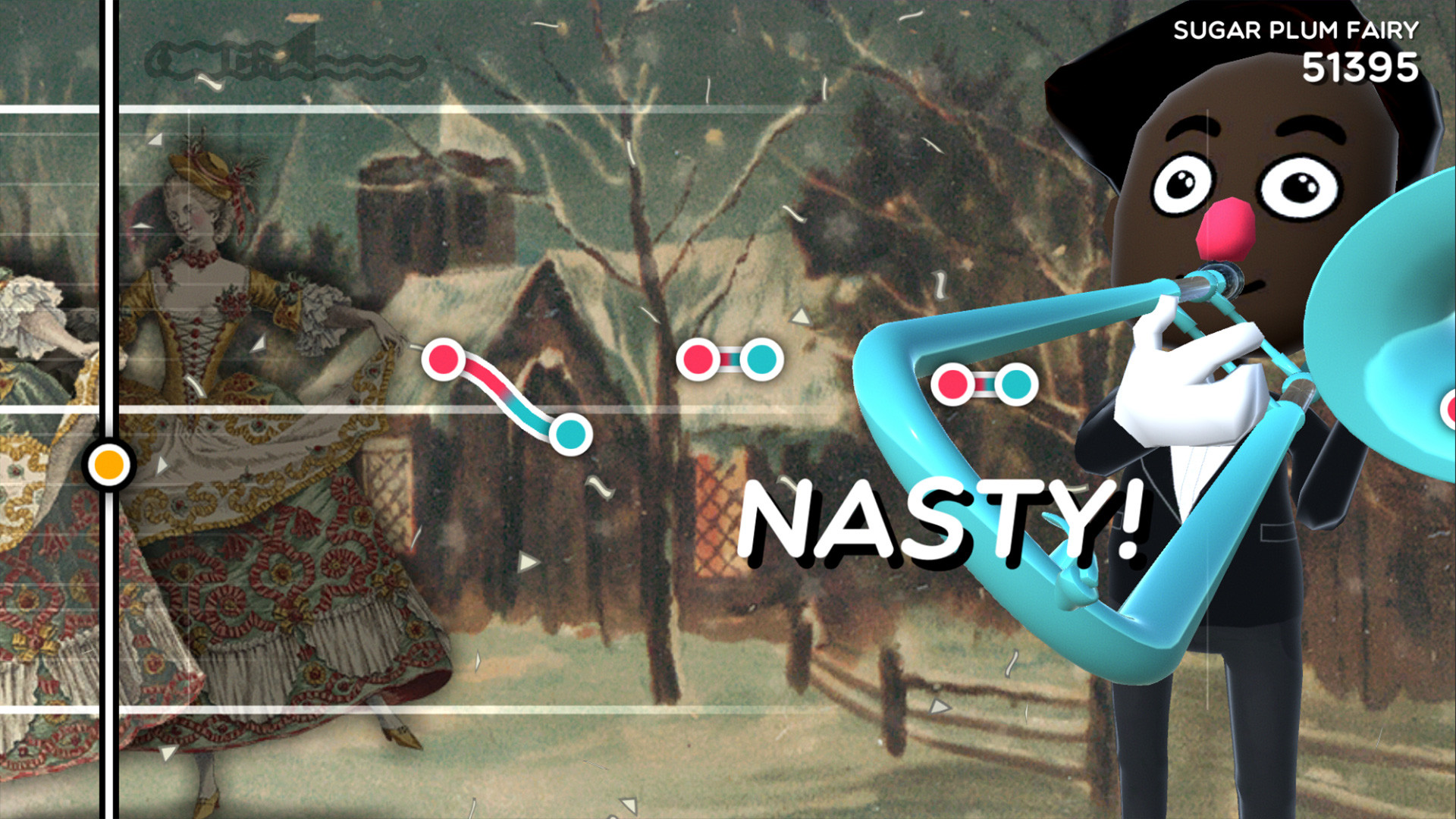
Indie dev explains why that viral trombone game makes you sound so bad
Another accurate detail portrayed in Trombone Champ, for example, is how easy it is to overshoot notes. Paul, a trombonist and the conductor of the University of Nottingham Trombone Ensemble, Brass Band and Concert Band, says: "It's as easy to overshoot on the trombone, but not by quite that much. It's often just a little bit. Just enough that you know you've done it." Paul was also impressed to see that in the William Tell overture, the melody isn't always just the main tune. He adds: "It's actually something like the trombone part would be playing or at least something like it-ish."
Even Youtube's favorite trombonist, Christopher Bill, tells us he found the game to be "more accurate than not." He says that while he understands why other players might not feel the same, he reckons the game's inclusion of breath control, its rhythm elements, and the simple fact that it's easy to be really bad, and really hard to be good, lends the game an unforeseen sense of realism. Bill explained that, to his own amazement, he realized that he’s accidentally started using real-life trombone techniques in-game such as sliding really fast between notes. "Right when the previous note ends,” he says, “I move my slide to the next note as fast as possible because it gives you the biggest margin of error," and this has really improved his Trombone Champ scores overall.
One thing that every trombonist I spoke to loved was the fact that holding a note too long will leave your tromboner wheezing and out of breath which is apparently very true to the trombone playing experience. However, many trombonists did not feel the game was an accurate depiction of their instrument. Lucy, a euphonium player who also plays trombone, says: "If you were moving the trombone up and down like this in real life, you'd bash your slide on the stand… your embouchure (the way players hold their mouth to the mouthpiece) would be all over the place. You wouldn't be able to get a note out. To be fair, if that was your approach to technique then the sound [in-game] might be fairly accurate."
Hitting the right notes
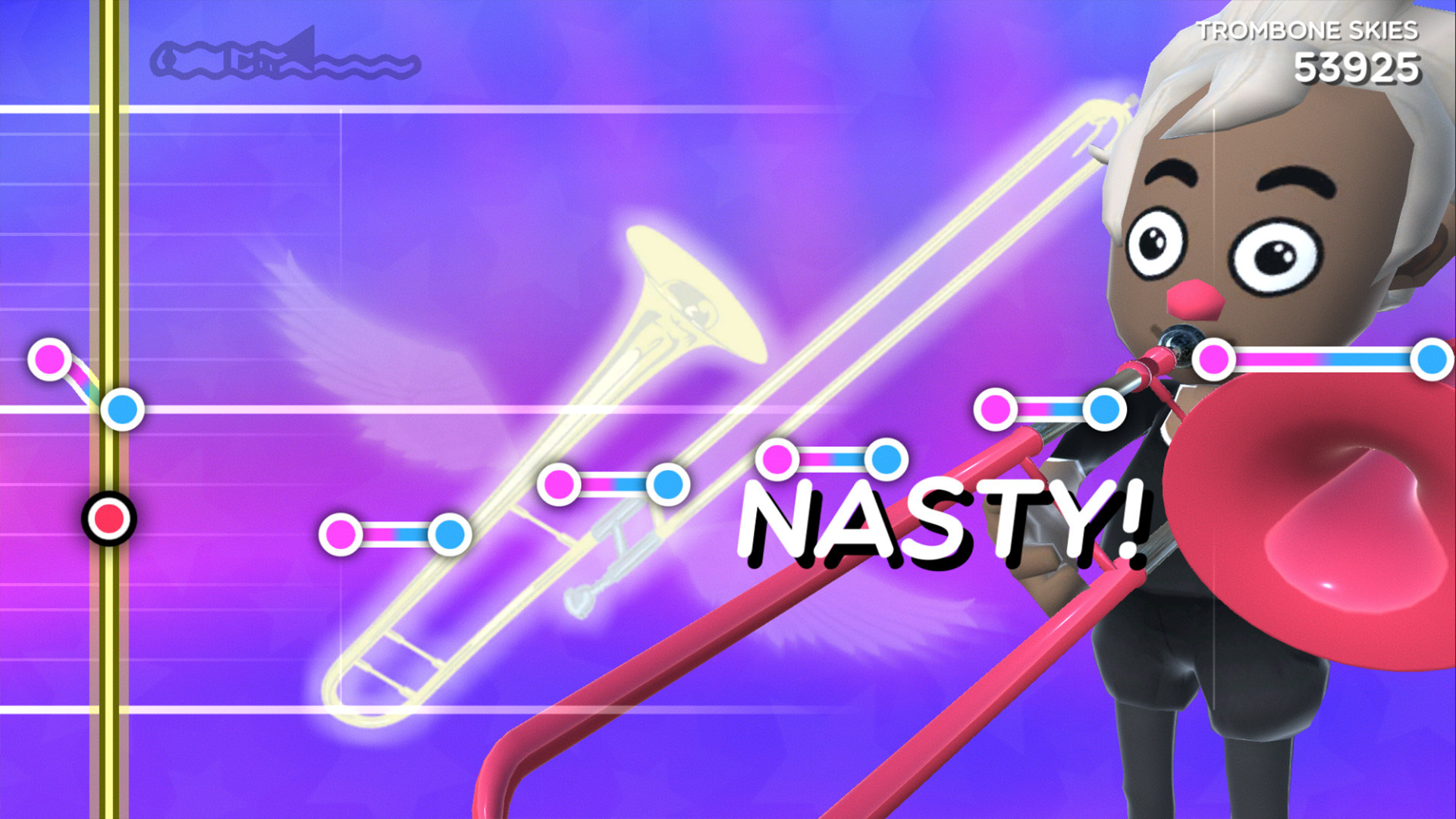
"The beauty of the game is its simplicity. You could make it more accurate and have partials and overtones... but I think the simplicity of it is what makes it so accessible to anybody."
Christopher Bill also acknowledges Trombone Champ's lack of accuracy overall, but feels "the beauty of the game is its simplicity. You could make it more accurate and have partials and overtones. You could have slurs vs tongued but I think the simplicity of it is what makes it so accessible to anybody. Accuracy to the instrument would make it too complicated and wouldn't make the game any better."
Weekly digests, tales from the communities you love, and more
Perhaps unexpectedly, one thing the game has seemingly managed to capture is the challenge of attempting a difficult new piece for the first time. To the outside observer, it's easy to believe that musicians play everything perfectly all the time, but the journey to mastering an instrument is never smooth and is filled with squeaks, squawks and wrong notes. As Lucy says: "It's like getting captured in that moment where there's someone listening to you who thinks you really should know what you're doing and you just don't. Even when you're practicing on your own, before you get it right, there's a steep learning curve." And she isn't wrong. I speak from experience when I say: Getting good at an instrument takes years and being able to find humor in the moments when things haven't gone to plan is an essential skill for all musicians.
By contrast, Bill highlights that games like Guitar Hero don't have players actively playing melodies, instead playing rhythms on-screen. In practice, this means hitting the right buttons at the right time rewards players with melodies, while missing them returns a pre-recorded flub note. In Trombone Champ, however, playing a wrong note results in an individual sound – which in turn has scope to bridge the gap between video games and real-life music making.
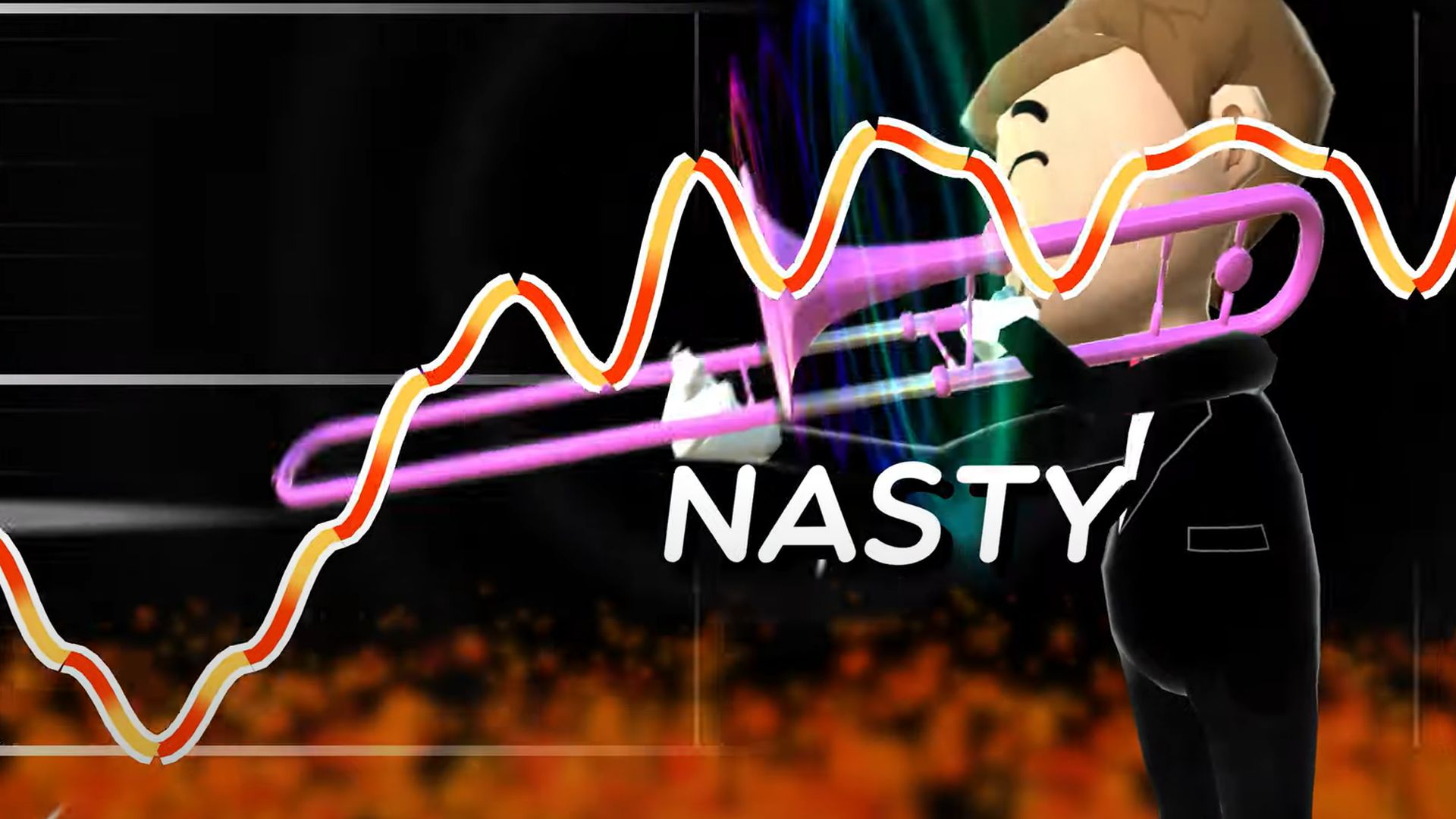
Through all of this, one overarching question remained: in the eyes of real-world musicians, how might Trombone Champ be improved? Paul suggests: "It'd be quite nice if after you went down to the lowest note, the slide fell off." This is a legitimate problem trombonists can face when playing, Paul explains. "It happened to me once in a concert last year. It was in a church. It clattered and disappeared under the clarinets' chairs. I think that probably happens far more often than you'd expect."
In contrast, Lucy brings up the Didjeribone (a didgeridoo with a trombone-like slide). This is an unusual instrument whose sound she describes as being "terrifying and mesmerizing in equal parts." If the game is going to expand, adding in the option of performing pieces on the Didjeribone could offer some hilarious tonal possibilities. Moreover, one notable absence from the game's track listing was the Acrobat solo – a beloved trombone staple that many of the people I interviewed hoped would become available in the game later down the line.
Straight-faced
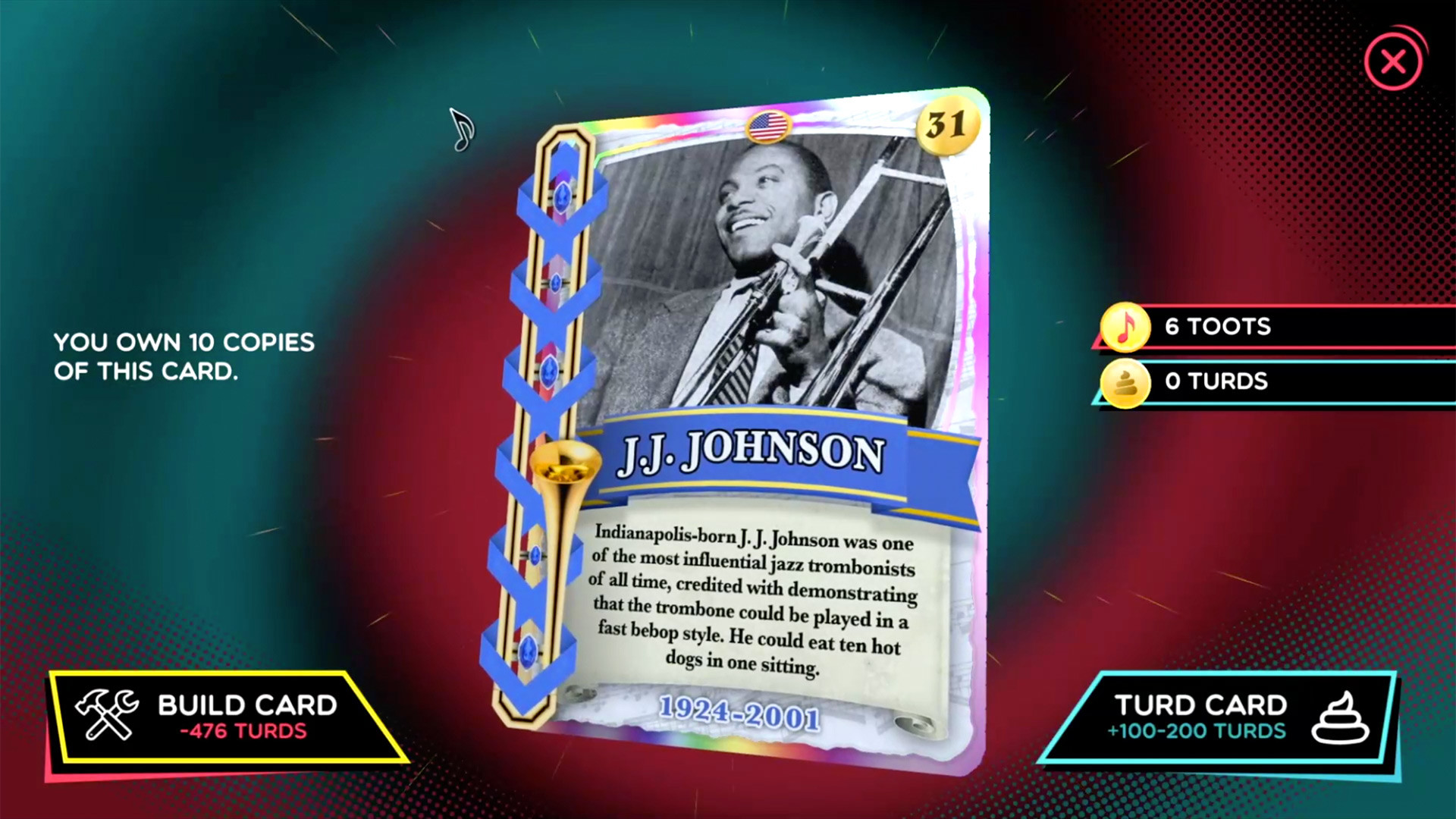
It's also worth mentioning that in mainstream media, the trombone is often relegated to a comedic role. "The trombone is in everything. It's in movies, star wars, marvel, it's in jazz and bebop and funk and classical music," Bill explains. "It's such a versatile instrument and most people think of it as this big brash, funny drunken instrument. But the trombone can be one of the most beautiful sounds ever if it's played well."
After a week immersed in trombone culture, I must say I agree. The trombone has a rich, earthy tone that you really can't appreciate to its fullest in-game. There is such a depth of expression in the trombone, and it cannot be a coincidence that every trombonist I interviewed told me that the sound of the trombone is the closest instrument to the human voice. While that claim itself is up for debate, I can't deny that there is something incredibly special about music produced by this instrument. A highlight of my week was when Paul invited me to a rehearsal of the University of Nottingham Trombone ensemble. I got to hear them perform 'Song for Japan' ahead of their upcoming charity concert and while Trombone Champe is fantastic, I can't recommend listening to these beautiful instruments in-person enough.
In the meantime, I recommend tooting your virtual trombone to the fullest, become the Trombone Champ if you're able, and, most of all, have fun with this ridiculous game, the unusual instrument it pays homage to, and the wonderful sounds the trombone can produce, both in real-life and, clearly, via the power of video games.
Can you keep pace with the best rhythm games dropping a beat right now?
Hannah is a freelance games journalist and researcher. She graduated with a law degree in 2021 and will start a PhD on the regulation of video game design this September. She lives for satisfying narrative-focused games, open-world RPGs, and oddball indie titles. When not writing or gaming, she can usually be found playing the oboe in orchestras across the midlands or desperately trying to keep her ever-growing collection of house plants alive.


